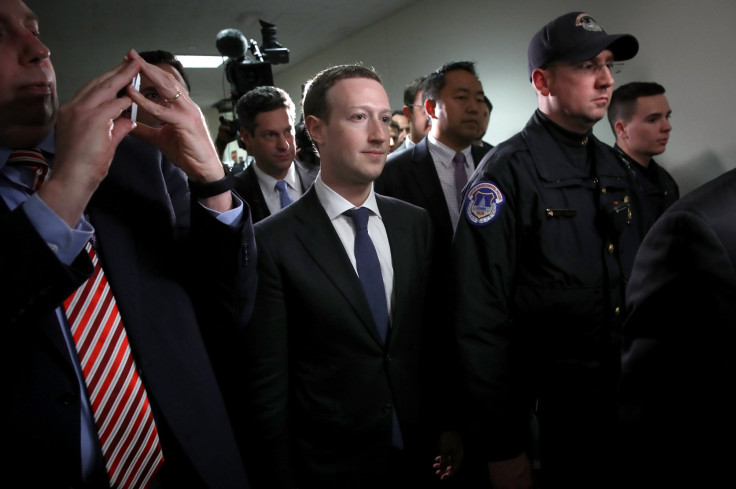Mark Zuckerberg Says Data Concerns Haven't Had A Big Impact On Results

Facebook (NASDAQ:FB) has scrambled over the last few weeks to address privacy concerns related to the revelation that Cambridge Analytica obtained unauthorized access to tens of millions of Facebook users' data. It's restricting advertisers' access to third-party data and has curbed the ability of developers to access the Instagram API.
This article originally appeared in the Motley Fool.
Meanwhile, campaigns to delete Facebook continue to make a lot of noise in the news, but it seems very few people are actually doing it. Mark Zuckerberg says the Cambridge Analytica news hasn't produced any meaningful impact on usage. Additionally, he notes no noticeable impact on ad revenue, either.
COO Sheryl Sandberg told Bloomberg that a few advertisers have paused their ad spending on Facebook as they wait for the uncertainty over data restrictions or regulations to clear. But overall, it appears Facebook hasn't seen a major financial impact from the Cambridge Analytica fallout for the time being.
Facebook Addiction
In case you didn't know already, people spend an absurd amount of time on Facebook every day. The average daily user spends over 40 minutes per day on the platform -- and that's after making changes that reduced the amount of time people spend on Facebook. While it's easy enough to delete an app from a phone, 40 minutes per day is a big void to fill. It's no surprise people are having a hard time quitting.
Third-party surveys back up Zuckerberg's claim that there hasn't been a meaningful drop in usage. Evercore ISI found that Facebook still owned the top four most downloaded apps across the 40 apps it tracks in the iOS and Android app stores. In fact, Facebook expanded its share of social app downloads in March, to 33.2% from 30.1%.
Meanwhile, a Raymond James survey found 73% of respondents still used Facebook in March compared to 74% in October. Messenger saw no change in usage, and Instagram usage ticked up 1 percentage point. Only 8% of respondents said they plan to stop using Facebook altogether in response to the Cambridge Analytica reports, but another 44% said they plan to use Facebook less.
The company's recent news feed changes will obfuscate the impact of the Cambridge Analytica concerns on engagement, but it doesn't appear to be very significant so far.
Advertisers Aren't Going Anywhere
Facebook has an unparalleled user base, totaling over 2 billion people. Even if a few users leave or spend a bit less time on Facebook, the company still will have a reach greater than just about any other digital advertising platform. That's tremendously valuable to advertisers.
But Facebook could restrict access to its data for advertisers or how advertisers can use their own data on its platform. That could negatively impact how effective each ad impression is, reducing the return on investment for marketers.
We're already starting to see self-imposed restrictions from Facebook, as it's making it more difficult for marketers to use data from third-party furnishers like credit bureaus or companies that collect information from shopper rewards programs. If the return on investment starts to decline for some advertisers, Facebook won't see its ad prices climb as quickly as they've been doing in the recent past. That's an important part of Facebook's revenue growth going forward as it faces ad-load saturation in the news feed.
Ultimately, Facebook will have to find a balance between addressing users' privacy concerns and the ability for its advertisers to use its data to improve their targeting. That's pretty much always been the case for Facebook -- it's just a bit more top of mind right now.
Facebook investors only have one more hurdle to clear in the near term: Zuckerberg's congressional testimony on April 11. That could result in negative regulations placed on Facebook down the line that could impact the data it's allowed to use to target advertisements.
For now though, the self-imposed restrictions present a greater threat to revenue growth for the company.
Adam Levy owns shares of Facebook. The Motley Fool owns shares of and recommends Facebook. The Motley Fool has a disclosure policy.











